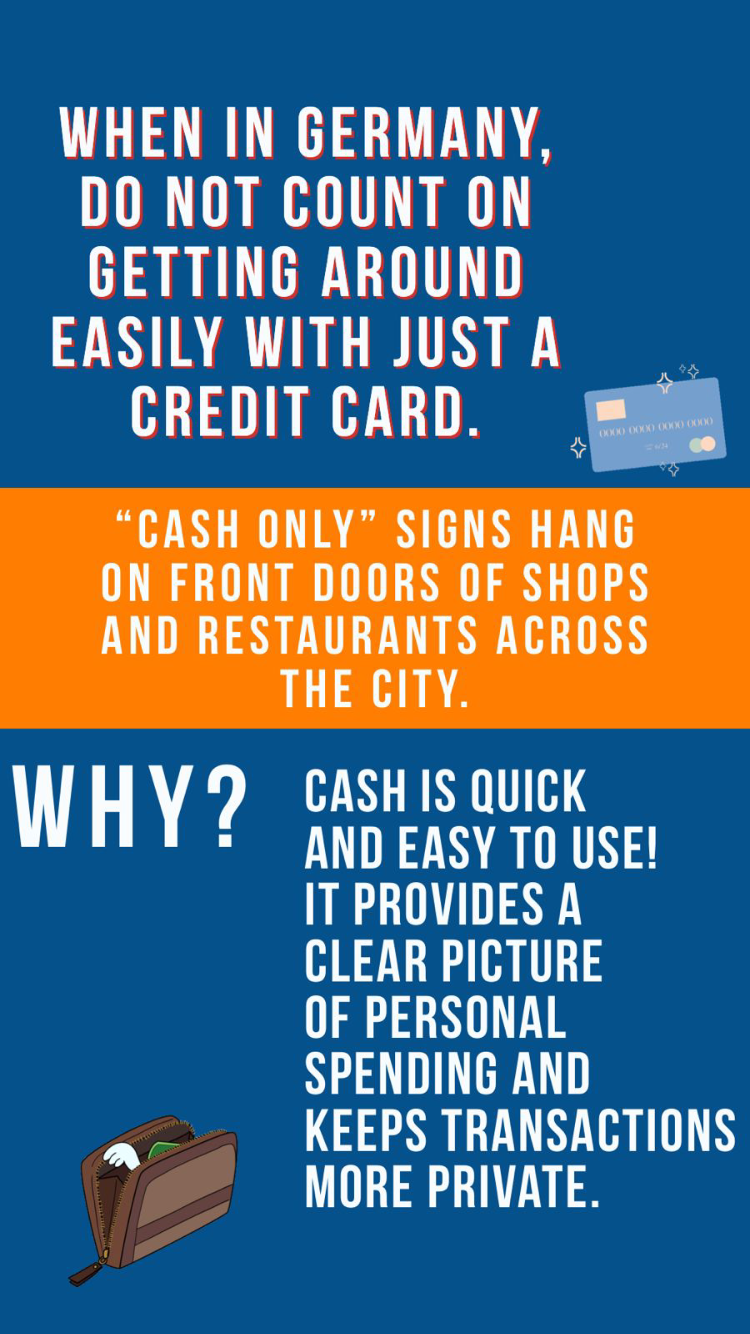
If you’re not from Germany or haven’t lived here before, you’ll definitely notice some differences in the culture and atmosphere here compared to what you might’ve been used to before. Before I came to Germany, I had lived in Sri Lanka my whole life, so coming from an Asian country to Germany was certainly a big change. It seemed daunting at first, to live in a new country, in a new continent, all while being so far away from my family. What had initially been intimidating to me, I now find unique and interesting about life in Germany.
Many students experience these same feelings, and so Martina, a second year Medicinal Chemistry and Chemical Biology (MCCB) major, has conducted a small campaign as part of her work for Jacobs’ social media team which details some of the few unique and interesting cultural differences a lot of students, and possibly you, might notice when arriving in Germany for the first time. Her campaign is one of the numerous projects conducted by Jacobs’ social media team which involves each of the four students to conduct semester-spanning campaigns at Jacobs to prospective students who might be interested in learning more about what life here has to offer.

Martina’s project aims to showcase novel and fun experiences students found living in Germany. Also wanting to capture the influence of said experiences on students’ perceptions towards German life and culture, Martina asked around to discover what cultural differences we’ve all noticed and found interesting about Germany. Perhaps you can relate to these, too!
The first (and arguably most noticeable) difference is that supermarkets are most often closed on Sundays. This was definitely a big one for me, as I remember taking the bus to Kaufland (a big grocery store close to campus) and noticed everything was closed when I had arrived. It took me so long to figure out why it was closed, as I had come from Sri Lanka where many restaurants and small corner shops selling essential groceries were mostly open until at least midnight, if not longer. At the time I found it inconvenient but having a collective sense of peace on a Sunday when you know most people are at home or venturing in the city with friends as part of a day out makes Sundays feel really calm to me. Not to mention it’s also a very funny sight when I’m rushing to the grocery store at the last minute on a Saturday evening still forgetting that they close on Sundays yet seeing 20 other students in the same bus as me, with the same panicked sense of urgency. A mild inconvenience for what I believe is a really necessary break for essential workers. It was very comforting when I understood just how fair Germany was to its workers, as I felt assured that when and if students decide to work here upon graduation, that their rights and well-beings would be heavily protected by German law.

Another cultural difference Martina had written about for Jacobs’ Instagram page was the use of cash over credit cards. I didn’t know this before coming to Germany, in fact, I thought the opposite of Europe: that cash was widely unaccepted, and that credit or debit cards were the norm. In Germany, however, numerous stores have “cash only” signs plastered on their windows. I remember trying to get food from a stall next to the Bremen Hauptbahnhof and being told that they only accept cash, which took me by surprise. Cash is often much more convenient than using a card, as there are even restaurants that deliver cheap and delicious food to campus but only accept cash. Using cash also makes sure that you actively know how much you’re spending on something. It’s very easy to get lost in using a credit or debit card and then rushing to check your bank balance, suddenly wondering where your money went (you can tell I’ve experienced this as well!). With cash, on the other hand, I am actively aware of how much I have to spend and how much I’m willing to spend as well. Budgeting is much easier when you have cash on hand, and any extra change I have I typically use at the vending machines on campus or at the student-run kiosk here.
The third difference that Martina pointed out was that public restrooms here usually require you to pay for them. Normally, you pay €0.50, sometimes even €1, to use the public toilets here. Personally, I didn’t find this to be too much of a change as in Sri Lanka this was somewhat of a common experience as well. However, the public restrooms here, despite you having to pay a sum to use them, are incredibly clean and well-maintained. The pattern you might notice here is that in Germany, there is a strong, community-based sense of give and take. Paying €0.50 to €1 almost certainly guarantees you a clean restroom, and in the end it’s a minor inconvenience for all the effort that is put in place to maintain the orderliness of such busy and public restrooms.

The final difference is most probably my favourite: square pillows. Here in Germany (and when you first arrive on campus), using large, square pillows are the norm. I was so used to my rectangular pillows that I ended up having a laugh at how I was supposed to use such a large pillow. “Do I fold this?”, “Do I just use this as a big sofa cushion?”, and “They really make pillowcases for these?” were some of the many questions I had that sparked hilarious and fun conversations between me and my friends from back home about how I was getting on in a new country. It was interesting to me, chatting about the idiosyncrasies of German culture with friends who had never even heard of such rules and traditions. I was glad to be able to share this new cultural experience with friends from back home, who, like me, would’ve never known of these fun facts had they not come here, or had I not told them.
Ultimately, I find myself thinking of these cultural differences in Germany as zany and definitely great conversation material. Everyone experiences cultural differences when moving to a new country, so if you’ve ever felt nervous about what it’s like here, just know that there’s only hilariously relatable experiences to be had and shared amongst international students alike – and that, if needed, you’ll always have a giant square pillow next to you for comfort!
BY KAYLA COLLETT (UK) | CLASS OF 2023
